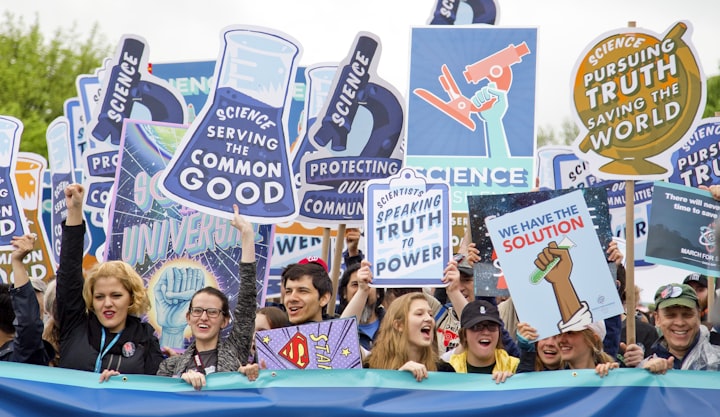
Pseudoscience refers to beliefs, theories, or practices that are presented as scientific but lack supporting evidence, validity, or reliability. Pseudoscientific claims are often made to sound plausible and convincing, but they lack the rigor, testing, and peer review that true science demands. The dangers of pseudoscience lie in its ability to spread misinformation, create confusion and doubt, and even harm individuals or society at large.
One of the most common forms of pseudoscience is alternative medicine, which includes therapies, practices, and treatments that are not supported by scientific evidence or are even contradicted by it. Examples include homeopathy, acupuncture, and crystal healing. While some alternative therapies may have a placebo effect or provide temporary relief, they are not effective in treating or curing medical conditions, and may even interfere with conventional treatments.
Another form of pseudoscience is conspiracy theories, which are often based on anecdotal evidence, selective interpretation of facts, and a distrust of authority. Conspiracy theories can range from harmless, such as belief in UFOs, to dangerous, such as the anti-vaccine movement, which has led to outbreaks of preventable diseases. Conspiracy theories thrive in an age of social media, where information can spread quickly and without fact-checking, leading to a proliferation of false claims and damaging misinformation.
Astrology and other forms of divination are also pseudoscientific, relying on vague or generalized interpretations of celestial events or the randomness of chance to provide insights into human behavior or the future. While they may be harmless in themselves, they can lead to a belief in fate or destiny, which can be disempowering and limit personal growth and agency.
Illustrations:
1. 5G NETWORK vs COVID

One example of pseudoscience in conspiracy theory is the claim that 5G networks are responsible for the COVID-19 pandemic. This claim is based on the false belief that 5G radiation weakens the immune system, making people more susceptible to the virus.
The consequence of this conspiracy theory is that it has led to widespread fear and misinformation, causing some people to destroy 5G cell towers and resist the installation of new networks. This not only poses a threat to public safety and communication infrastructure but also hinders efforts to combat the pandemic by impeding the rollout of vital technologies such as contact tracing and telemedicine.
Additionally, the spread of this conspiracy theory has eroded trust in science and public health institutions, making it harder to promote evidence-based practices and to address other health threats.
2. VACCINE vs AUTISM

Another example of a famous conspiracy theory that has been thoroughly debunked is the belief that vaccines cause autism. This theory gained popularity in the late 1990s, when a British doctor named Andrew Wakefield published a study claiming a link between the measles, mumps, and rubella (MMR) vaccine and autism.
However, Wakefield's study was found to be fraudulent and was retracted by the journal that originally published it. Multiple studies conducted since then have found no evidence of a link between vaccines and autism. Furthermore, Wakefield was found to have falsified data and violated ethical standards in conducting his research.
The consequences of this conspiracy theory are significant and far-reaching. It has led to a decline in vaccination rates, which has resulted in the resurgence of preventable diseases such as measles and mumps. This has put vulnerable populations, such as children and the immunocompromised, at risk of serious illness and even death.
In conclusion, the belief that vaccines cause autism is a famous conspiracy theory that has been thoroughly debunked by scientific research. It is important to rely on evidence-based information and to approach claims made in the media and online with a critical eye, in order to avoid misinformation and promote public health and safety.
3. BARNUM EFFECT - DEBUNKED

One example of astrology being debunked is the Barnum effect, which is a psychological phenomenon in which people tend to believe vague and general descriptions of their personalities or lives that could apply to anyone. This is often seen in astrology horoscopes, which use vague and general statements that can apply to a wide range of people.
This effect is named after P.T. Barnum, the famous showman and circus owner, who was known for his ability to attract large crowds with his elaborate hoaxes and spectacles.
The Barnum effect is often observed in personality assessments, such as astrology horoscopes or personality tests, that provide vague and general descriptions that could apply to a wide range of people. People tend to find these descriptions accurate and relevant to themselves, even though they are not specific to them.
The Barnum effect is thought to occur because people have a natural tendency to seek meaning and significance in their lives. They are often eager to accept positive feedback about themselves and may overlook or ignore information that does not fit their self-image.
FINAL THOUGHTS
Finally, pseudoscience can be a tool for fraud or deception, as charlatans and quacks use scientific-sounding jargon and testimonials to sell products or services that have no proven benefit or are even harmful. Examples include fraudulent weight loss supplements, miracle cures for cancer, and psychic readings.
In conclusion, the dangers of pseudoscience lie in its ability to misinform, confuse, and harm individuals and society. By promoting false or unproven claims, pseudoscience can undermine the progress and legitimacy of true science, erode critical thinking skills, and even put lives at risk. It is important to remain vigilant and skeptical of claims that sound too good to be true, and to seek out reliable sources of information and evidence-based practices.
About the Creator
Digitally All
Passion for writing fictions and poems about anything and everything. Do support me and share your valuable comments.






Comments
There are no comments for this story
Be the first to respond and start the conversation.